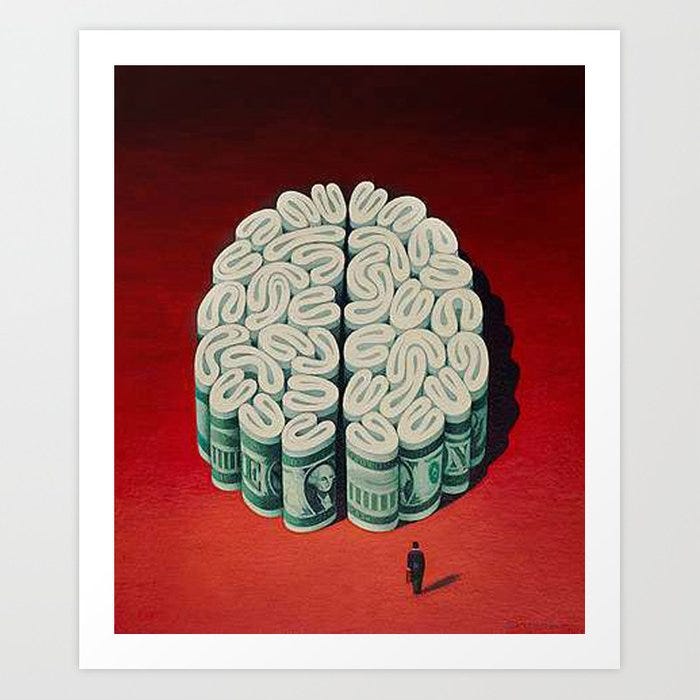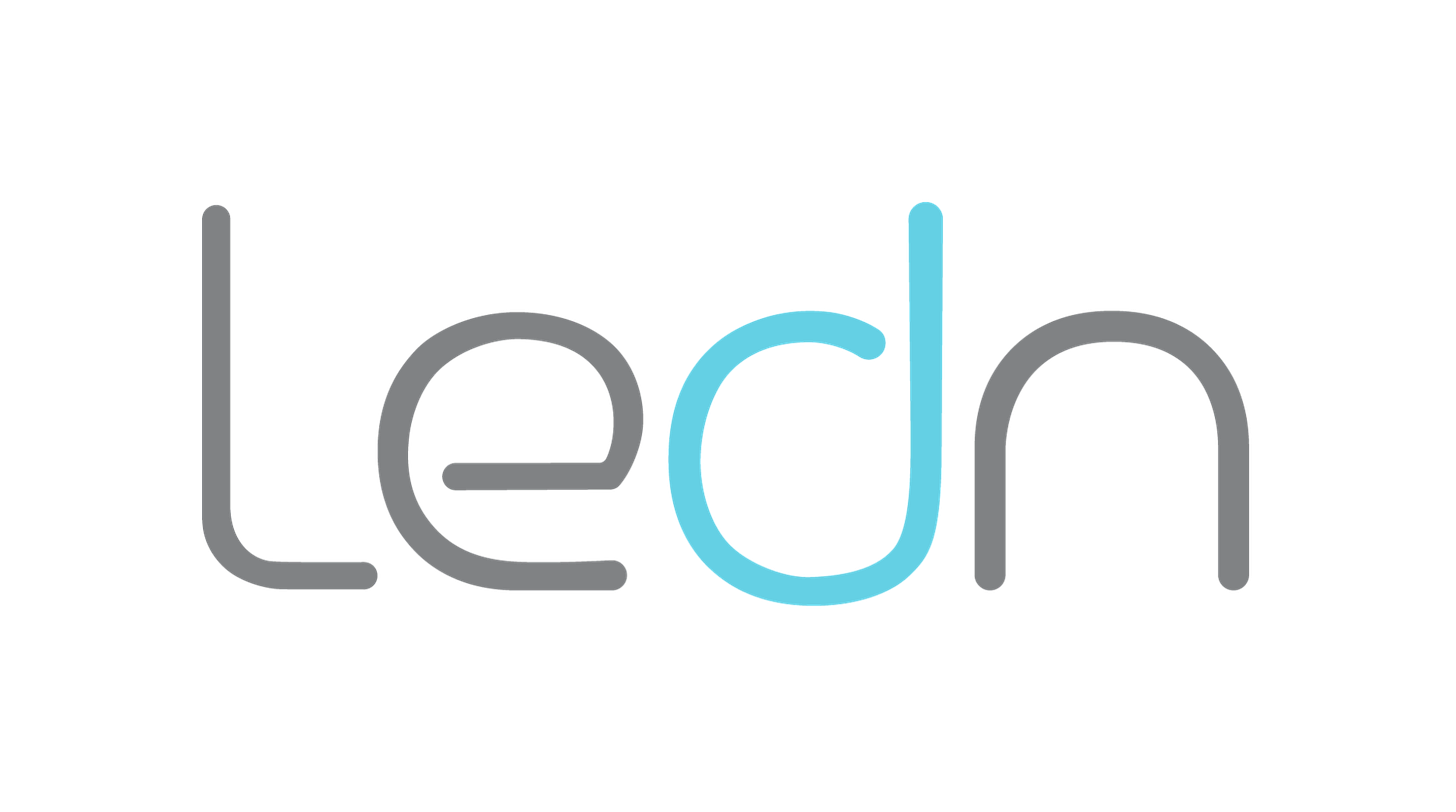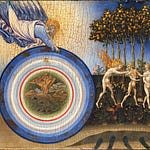*In this multi-part special edition of The Freedom Analects, we will be featuring the excellent written work of author John Vallis titled “Money Messiah: God, Bitcoin, and The Evolution of Consciousness.” This essay beautifully depicts the deeper aspects of value and money, their indispensability to human action, and demonstrates why corrupt money is such a destructive force. John’s original work is available in its entirety here.
Money and Consciousness
As we’ve been exploring, it seems we humans intuitively see our environment through the lens of value, and we are evolved to compare value to bring order to our perception, and facilitate striving forward toward our goals.
Interestingly, the very process that permits us to move forward, would appear to simultaneously be the one which determines the direction of that forward movement. In this way, human consciousness seems to require a ‘god’ (something to sit atop the internal value hierarchy) to function, but is simultaneously striving to discover what that god ought to be, through the constant act of comparative valuation.
Paradoxically, any hierarchy then requires something to sit atop it to generate order, but the very process by which it becomes ordered is what determines what sits atop it. It would appear to be a circular process of continually comparing value against some temporary ideal, until the highest ideal or value is discovered, and union with it achieved (assuming one persists in the pursuit).
It may then be the case that the primary mechanism by which consciousness functions, is the drive to ‘get closer to’, or to ‘discover’, ‘god’, and that such a process (again paradoxically) both permits and requires all of its other value-driven functions.
Following this line of thought, would such a union, the ‘experience of god’, if/when achieved, halt or pause that process of comparative valuation and hierarchical reorganization?
Is this the absolute ‘stillness’, ‘quiet mind’, ‘union with the present moment’, ‘nirvana’ or ‘enlightenment’ that is described by mystics and spiritual adepts throughout the ages?
Interesting questions.
*Ledn has recently launched a Bitcoin-based home mortgage product. Now you can buy your dream home without selling your Bitcoin!
Sign up with Ledn to get started today: https://mortgage.ledn.io/
In any case, it seems our consciousness functions in this way for the very purpose of creating order, at least in relation to our individual perspective and biological imperatives.
Crucial to this is what could be called an ‘impulse to value’ — a near immediate, mostly subconscious attempt to determine the motivational significance of the objects, people, ideas and other phenomena we encounter. This allows all phenomena to be properly integrated into our hierarchies, and optimally structured for most efficient movement toward our goals.
What our minds are really doing, when they value, is trying to erect a hierarchy that leads most efficiently towards states of ever greater motivational / emotional significance.
The state of greatest motivational significance is what sits atop the value hierarchy, and would appear to be one’s true god (rooted in the truth of behaviour, rather than, say, what one has been told or wishes to be true).
This impulse is not exclusively applied ‘internally’. As the fundamental processes of consciousness are shaped in response to the external world, they naturally seek to extend the domain over which their capacity for generating order may be applied, by optimizing for the compatibility of our value hierarchies as far beyond the borders of our own ‘physical’ control as possible.
This process involves many adjustments, and is largely responsible for the ‘socialization’ which integrates all the necessary cultural norms, cues, and assumptions, which limit the expression of certain elements of our ‘personalities’ (internal hierarchies), and promotes others, such that they may be accepted and interact beneficially with those of other people.
Relevant to our exploration, is the seeming tendency for this process to elicit a (possibly never-ending) search for an ‘external ideal’, something which most replicates the order-establishing capacity of our ‘internal ideal’ — that is, something to serve as that which is of greatest motivational significance.
What the market selects (due to a mutual, if subconscious, recognition of the utility) at any given time to perform that role, is what we call money.
In effect, money is the key tool which permits the externalization of the very processes of consciousness, not only by allowing for the establishment of dynamic hierarchies in the market itself, but also by permitting the ‘linking’ or ‘connecting’ of the hierarchies of each person to it. This maximizes the compatibility of ‘map’ and ‘territory’, which makes all the ‘computations’ our minds must do to operate socially, and move toward our goals, maximally efficient, permitting optimal engagement with others who share the terrain. Money is thus the primary foundation of the ‘structure’ that we act within, get signals from, respond to, and attempt to become congruent with, and is therefore the primary link between our minds and the shared domain of action — culture/society.
As a result, money is what actually permits the determination and communication of what is most affectively and adaptively significant about our environment, by and to those with whom we share it, and is therefore the critical mechanism for determining relative — and thereby ultimate — value.
The ‘Externalization’ of Consciousness
But how is such a thing ‘discovered’ or ‘chosen’?
Whether money first emerged as an emblem or repayment of debt, or to resolve inefficiencies related to barter, is ultimately insignificant (though in my opinion the former would have come first).
*Join me at the biggest event of the year, Bitcoin 2022. See below for 10% discount on tickets*
“Bitcoin 2022 Conference is the biggest gathering of the Bitcoin ecosystem in the world. Join me and the movers and shakers shaping the Bitcoin future next April 6-9th in Miami Florida for Bitcoin 2022 Conference.”
Paying with Fiat? 10% Affiliate link: http://tixr.com/pr/robertbreedlove/26217
Paying with Bitcoin? Use promo code: BREEDLOVE.
Whenever human beings first conceptualized a ‘future me’, that is, when the temporal dimension of self-consciousness first emerged, so did some mechanism used to ‘relate’ to it.
Initially, it seems logical that this would have manifested first as a ‘mental’ mechanism, in which the mind (unavoidably, and subconsciously) kept track of expenditures of limited resources — ‘pieces’ of ourselves — and how the relation to our future self was changed as a result.
If we expended resources to the relative detriment of ourselves, and the benefit of someone else (say, if we gave something to them, even if just our time), the mind took note of the change in our ‘resource potential’ — ‘I contributed to that person’s future self, rather than my own.’
This appears to be a fundamental feature of how the mind, housed in a finite body, relates to itself, and therefore even occurs when time and energy are given without any expectation of return — even in charity, the mind still ‘registers’ the expenditure of resources.
Eventually, ‘external’ items emerged to keep track and resolve such ‘debts’. They did so by representing commensurate expenditure of resources, or sacrifices, as the outstanding debt, and thereby correcting for any relative ‘imbalance’.
Of course, ‘commensurate’ is subjective, and became moreso over time, as ‘trade’ and the resolving of debts became more and more abstracted. Nevertheless, this item was always, and still is, meant to represent an individuals limited resources, and the value ascribed to them, as determined by ones conception of their future self (their ideal).
In Part 7, we will explore the emergence of a money as an emblem of sacrifice…
Thank you for reading Money Messiah (Part 6).
PODCAST
SOCIAL
SUPPORT
Send Bitcoin to my PayNymID: +tightking693
RECOMMENDED BUSINESSES
Automatically buy and withdraw Bitcoin ($10 in free Bitcoin here)
Join Me at the Bitcoin 2022 Conference in Miami, FL (Code: BREEDLOVE)
Home Delivered Organic Grass-Fed Beef (Discount Code: BREEDLOVE22)
Bitcoin-based home mortgages with Ledn: A better home for your Bitcoin
If you’ve found my work to be valuable, please join our private telegram group:


















Money Messiah (Part 6)